THE Department of Trade and Industry (DTI) – Construction Industry Authority of the Philippines (CIAP) celebrates 43 years of delivering exemplary service to the Filipino people through its unwavering commitment, integrity, advancement and professionalism.
On its 43rd founding anniversary, the DTI-CIAP strongly reaffirms its pledge to the Filipino people to pursue programs and services that will push for a more innovative, sustainable, vibrant and globally competitive Philippine construction industry.
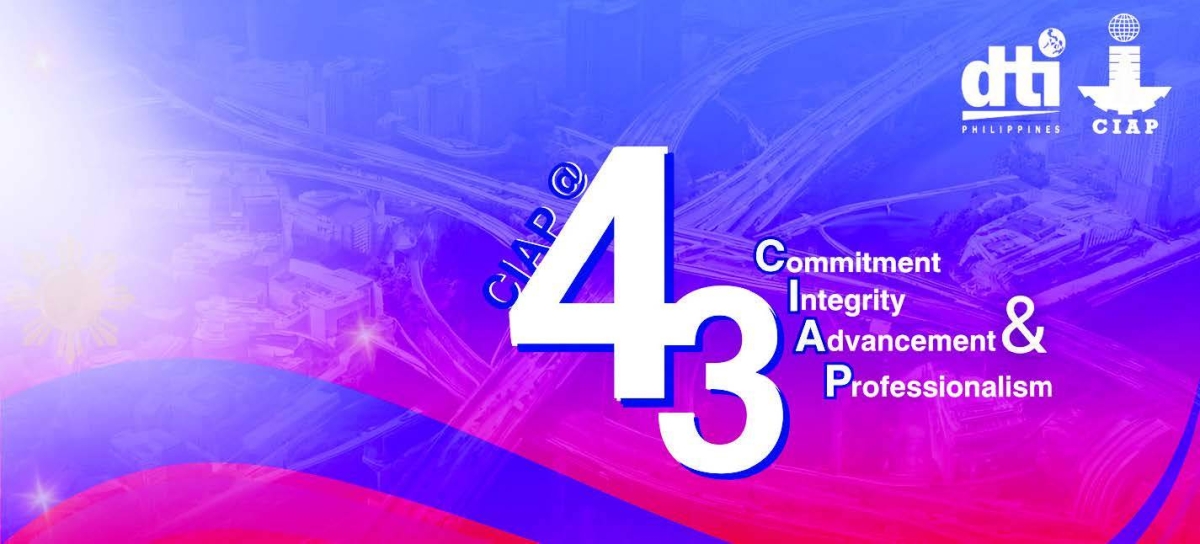
Commitment to overall agency vision

Created in 1980 through Presidential Decree 1746, the DTI-CIAP has been envisioned to assist the Philippine construction industry in dealing with the challenges that have been brought about by the lack of cohesive government policies and the absence of a central authority focused on the sector.
Fast forward to 2023, the CIAP continues to fulfill its mission under the leadership of Department of Trade and Industry (DTI) Secretary Alfredo Pascual, and with the invaluable contributions of CIAP Alternate Chairman and DTI Assistant Secretary Agaton Uvero, CIAP Executive Director Marco Maat and CIAP esteemed board members.
The CIAP remains committed and resolute in working toward the achievement of the agency’s mandate and vision of serving as the central government authority at the forefront of construction industry development through its five implementing arms: the Philippine Contractors Accreditation Board (PCAB), Philippine Domestic Construction Board (PDCB), Philippine Overseas Construction Board (POCB), Construction Manpower Development Foundation (CMDF) and Construction Industry Arbitration Commission (CIAC). To this day, this vision is continuously being realized through the performance of the mandates of the CIAP and its implementing arms.
The implementing arms of CIAP perform a wide array of functions, including licensing and registration of contractors for PCAB; domestic construction industry policy development and implementation for PDCB; promotion of the interests of the Philippine construction industry in overseas markets for POCB; enhancing the competencies and capabilities of human resources within the construction industry for CMDF; and the provision of alternative dispute resolution for a speedy and equitable settlement of construction contract disputes for CIAC.
These mandates collectively align with the unified mission of CIAP: to ensure that the Philippine construction industry will continue to grow and contribute to the overall development of the Philippine economy and the prosperity of the Filipino nation.
Improved and inclusive system for contractors’ licensing, registration
As stipulated under its enabling law, the CIAP is “designed to promote, accelerate and regulate the growth and development of the construction industry.”
The integrity of the current initiatives, programs and services performed and offered by the CIAP and all of its implementing arms contribute to the achievement of this unified objective.
Aligned with the whole-of-government approach to ease of doing business in the Philippines, PCAB has launched its fully online end-to-end licensing process for the accreditation of construction contractors.
This digitalization initiative aims to streamline administrative procedures, reduce processing period, and ensure a more accessible and user-friendly experience for contractors.
The automation of contractors’ licensing in the Philippines contributes to the overall improvement of the accreditation system within the construction industry, especially as the number of infrastructure projects in the country continues to increase after the Covid-19 pandemic.
The PCAB has consistently worked to uphold the effectiveness of its online licensing portal since its launch in 2020. This digital platform incorporates reporting and monitoring features, including the generation of reports on the status of applications and the verification of the status of licensed contractors.
PCAB’s licensing system also caters to small-scale contractors through the Pakyaw Contractors’ License. This type of license offers individuals or small-scale contractors with the opportunity to legitimize their operations and obtain official licensing.
The licensing system not only assists the small-scale contractors, but also guarantees safety in construction projects by minimizing and preventing unfortunate incidents that might be in violation of public security and government regulations.
To better perform its primary mandate of ensuring that contractors meet the required technical, financial and ethical standards in construction activities within the Philippines, PCAB also conducts various online and off-site workshops, seminars and orientations to inform current and future construction contractors of the policies on licensing and registration.
Boosting the growth of domestic construction industry
As part of its responsibility to formulate policies and overall strategies for the optimum development of the construction industry, the CIAP board has passed several resolutions, addressing critical issues and enabling the industry to remain adaptable to new technological innovations.
Some of these resolutions include encouraging government agencies and the private sector to adopt building information modeling in their planning and construction projects, including facilities management. Additionally, the board supports the Department of Labor and Employment’s (DoLE) apprenticeship program by identifying apprenticeable occupations within the industry. The CIAP Board also takes the initiative to conduct studies on standardized construction materials and actively supports the enactment of legislative measures, aimed at fostering the accelerated and sustainable growth of the industry.
In advancing domestic industry development, PDCB continues to fulfill its mandate to supervise the Constructors Performance Evaluation System (CPES) by accrediting constructor performance evaluators, maintaining a data bank on the performance of constructors in government projects, and consistently updating and improving CPES guidelines and checklists. It is a requirement under the revised Implementing Rules And Regulations of the Government Procurement Reform Act.
The CPES intends to provide information on the performance of constructors in government projects, which may be used as basis for prequalification or eligibility check of constructors, agency shortlist, awarding of contracts, project monitoring and control, blacklisting of constructors, policy review or formulation, industry planning and credential or incentives award.
Moreover, it ensures the systematic monitoring and evaluation of the performance of constructors for the improvement of the country’s construction capabilities as a whole.
As the policy arm of CIAP, PDCB is also designated to monitor and ensure the proper implementation of the Philippine construction industry road map 2020 to 2023. This road map has been formulated and launched in partnership with the private sector through the Philippine Constructors Association (PCA) in 2019. It aims to improve the quality of construction services in the country.
The PDCB works on addressing the critical and emerging issues and concerns of the industry to further address the gaps in government policies. This is all in pursuit of accelerating the construction industry’s development in both the domestic and global markets.
Anchored on the policy reform advocacy action plan of the road map, some of the initiatives pursued by the CIAP-PDCB is a review of relevant laws and guidelines on quarrying such as Republic Act (RA) 7942 and RA 7160 or the Local Government Code.
It also includes the improvement of policies on the right-of-way acquisition for government infrastructure projects action plan; passage of important legislative measures such as Security of Payments Act, Public-Private Partnership Act and 30-year National Infrastructure Program Act; and the establishment of a linkage between and among government agencies and the private sector, specifically the constructors, and provide an avenue to address price escalation or adjustment, among others.
Enhancement of construction services for overseas participation and export
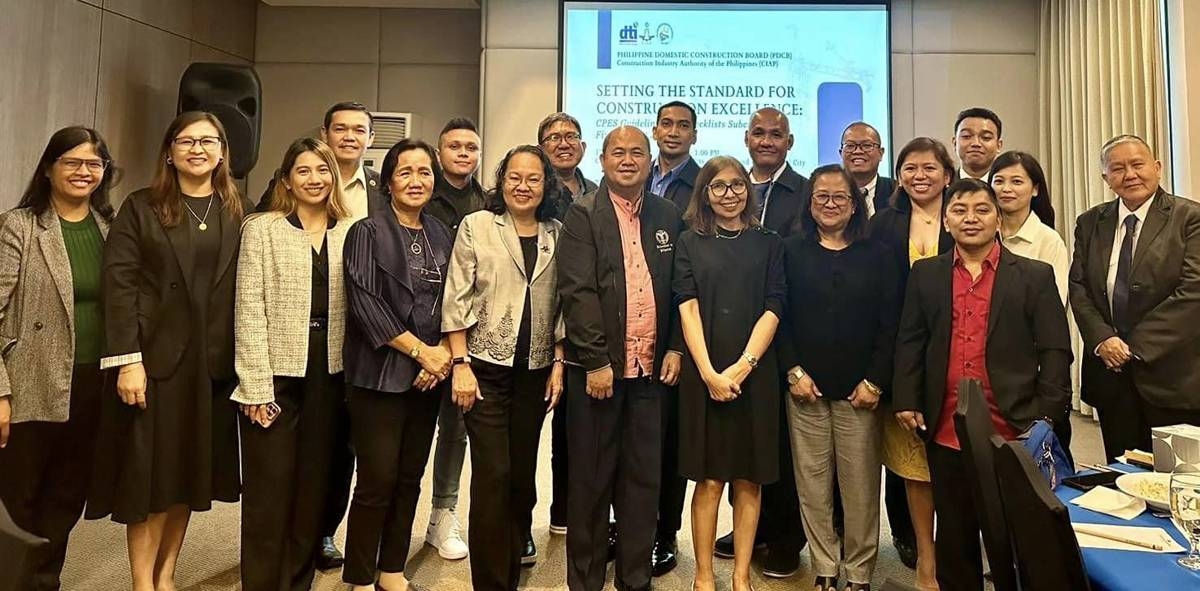
In terms of overseas market participation, POCB develops strategies and programs to reach prospective foreign counterparts as partners to generate leads for our local construction industry players. POCB accomplishes this by providing policy inputs, recommending strategies, and participating in regional, bilateral and multilateral trade negotiations.
With the mission to make the Philippine construction industry globally competitive and at par with its neighbors, POCB strengthens the competitiveness and capabilities of local construction industry players through seminars and information sessions.
The POCB facilitates the overseas involvement of Philippine construction industry players by regulating and authorizing Filipino companies that undertake or intend to undertake overseas construction projects. The POCB also monitors their performance abroad.
Additionally, the agency constantly promotes Filipino construction and related engineering service providers by showcasing their capabilities in international trade fairs and exhibitions — both virtual and physical — to create opportunities and remain within the radar of the evolving global market, specifically with the liberalization of industries to foster global competition.
In partnership with the India Electrical and Electronics Manufacturers Association (IEEMA), the POCB has organized and facilitated the inbound mission of the IEEMA delegation to the Philippines from July 11 to 14, 2023. This effort has resulted in 52 business meetings with 49 Philippine companies in the power and allied sectors, simultaneously sustaining and expanding engagement between Philippine and Indian businesses to help increase bilateral trade and investment.
Development of human resources in construction industry

CMDF has been established in response to the growing demand for skilled construction workers and professionals to support the growth and development of the Philippine construction industry. It remains committed to development of human resources in construction by implementing 205 programs, benefiting 8,603 professionals from January to November 2023. Some of these programs are classified to fall under managerial and supervisory, safety, certification, technology and industry-supported categories.
To further pursue the enhancement of the construction workforce, CMDF continues to implement key initiatives to enable construction industry professionals to adapt to emerging technologies and innovation.
In collaboration with the PCA and Bentley Education, the CMDF has organized the “Skills Olympics 2023: Digital road design competition,” which has involved 11 universities across the country.
The primary objective of the competition is to tap into the creative potential of civil engineering and technology students, bridging the gap between academic knowledge and practical construction competencies.
Aligned with the fourth industrial revolution or Industry 4.0, the 6-month competition immerses students in realistic scenarios, provides training in digital design creation and encourages meticulous planning of construction methodologies.
Also aligned with the development of human resources is the successful completion of CMDF’s public offering of the Foremanship Training and Certification Program (FTCP).
The training, held in Makati City, welcomes 25 construction foremen and skilled workers poised for foremanship roles. Traditionally exclusive to companies, the FTCP has been made accessible to individuals and small to medium-sized construction groups.
This expansion provides a valuable opportunity for participants to enhance their skills and knowledge, focusing on areas such as supervising work, building effective teams, measuring productivity, applying problem-solving skills, implementing safety and environmental programs, and ensuring construction project quality.
Alternative facilities for construction dispute resolution
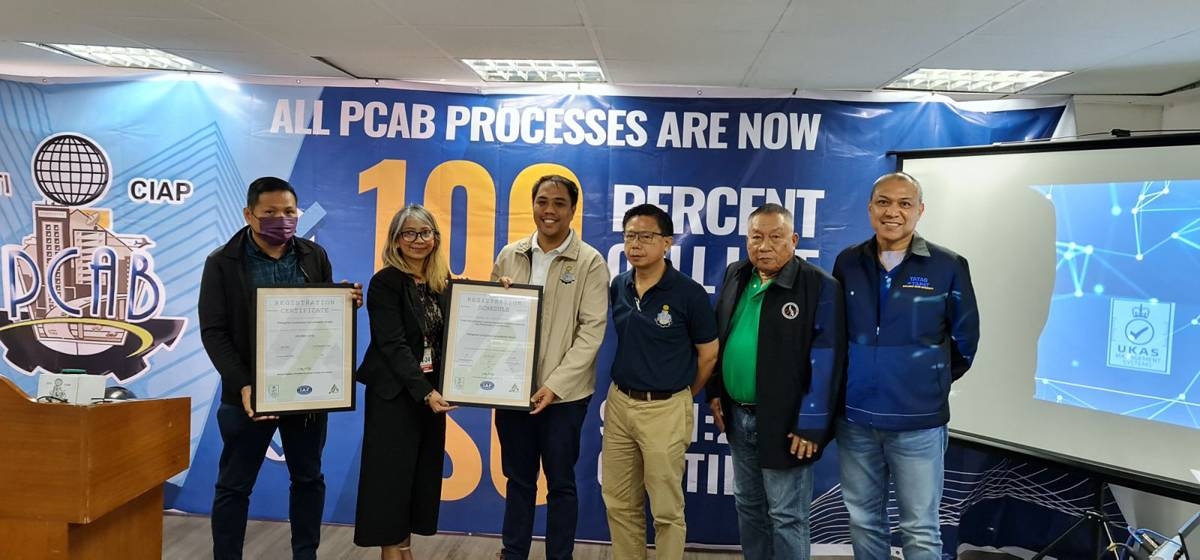
Vested with the original and exclusive jurisdiction over claims and disputes arising from construction contracts in the Philippines, CIAC provides alternative facilities to ensure the lawful and immediate settlement of such claims and disputes.
It offers mediation and arbitration as ways of reconciling differences between disputing parties with the help of people, who are familiar or knowledgeable with the nuances of the construction industry.
Decades after its inception through Executive Order 1008, CIAC stays dedicated in providing the construction industry with the necessary and reliable facilities for the resolution of construction contracts disputes.
To achieve this, a pool of qualified CIAC accredited construction arbitrators from various fields such as law, engineering, architecture and other allied professionals handle arbitration cases. In fact, the accreditation of these construction arbitrators is being done regularly by CIAC, requiring the completion of a rigorous accreditation course or training.
With the objective of keeping its accredited arbitrators abreast with current dispute resolution practices under international and domestic construction contracts, the CIAC also conducts quarterly Mediators and Arbitrators Continuing Education or MACE Program.
As of the end of October 2023, CIAC has accepted a total of 1,425 cases, involving a total sum in dispute (SID) of P155.3 billion. Of these cases, 1,116 have already been resolved or settled with an aggregate SID of P83.7 billion. Among the various cases filed with the CIAC, 1,134 are private construction contracts while the remaining 291 consist of government contracts.
Advancement of the Philippine construction industry
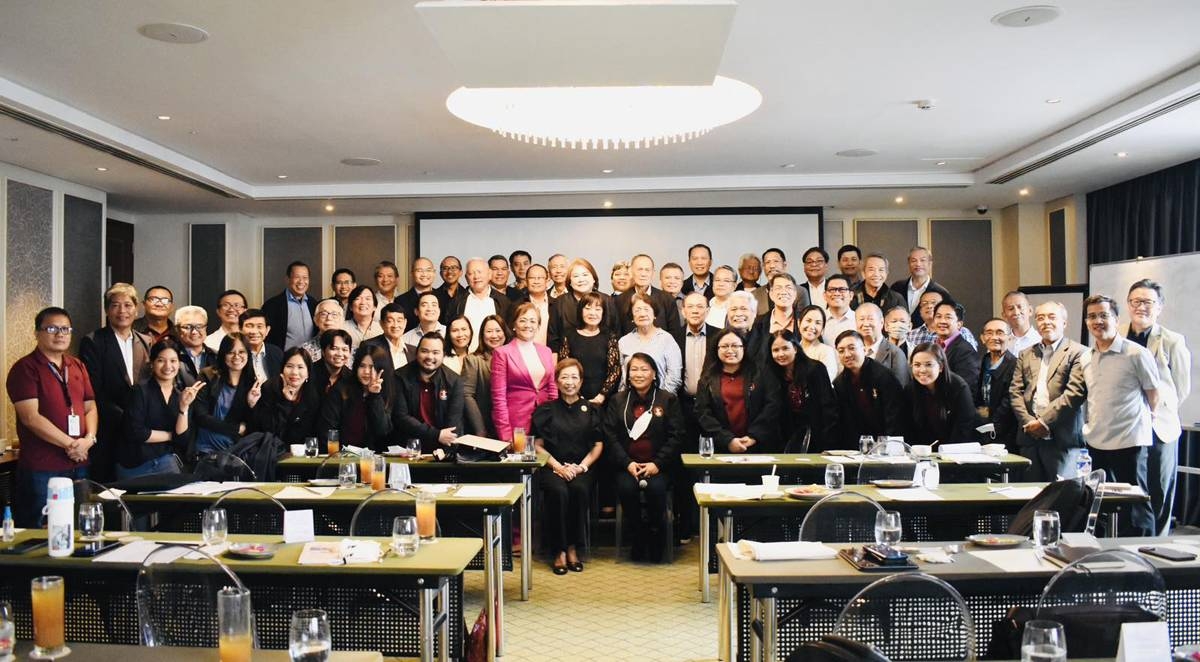
According to the Philippine Statistics Authority, the gross domestic product of the country posted a growth rate of 5.9 percent in the third quarter of 2023. One of the main contributors to this growth rate is the construction industry, which grew by 14 percent — a significant improvement compared to its 11.4-percent growth a year ago.
Remaining devoted to its mandate under the law, the CIAP strives to push for an accelerated growth and advancement of the Philippine construction industry. To keep up with emerging trends and opportunities, as well as to efficiently address the challenges that come with adapting to current times, the CIAP and all of its implementing arms are becoming equipped to pursue strategic plans and initiate programs and services that will aid in a more advanced evolution of the local construction industry.
Several strategic initiatives and plans are being developed by the CIAP to ensure that the construction industry will be better suited to dealing with critical issues and adjusting to global developments and technological advancements.
The current administration of CIAP envisions an innovative, sustainable and safe construction in the future. Modernization, adoption of sustainable practices in construction, recognition of stronger government-private sector collaborations, capacity-building, compelling policy reforms and implementing one-unified-government approach are among the strategies that are being pursued by CIAP to advance the construction industry.
More improvements to the contractors’ licensing system
To further enhance the process of contractors’ licensing, PCAB aims to improve its online licensing portal for the real time extraction of data, patterns and trends from collective contractors’ information. Additional payment channel facilities are likewise being planned to be integrated into the licensing portal, allowing registrants to easily complete their applications.
A mobile application is also in the pipeline for better accessibility and convenience of the contractors. With this PCAB mobile application, users can verify the legitimacy of a contractor, access mobile payment methods, enable photo document submission, use the E-sumbong hotline for violators, get real time updates and have a more efficient customer communication and feedback system.
PCAB also seeks to intensify its contractors’ licensing and registration information dissemination to encourage more contractors to formally register and get accredited.
Strengthening government-industry-academe linkages, partnerships
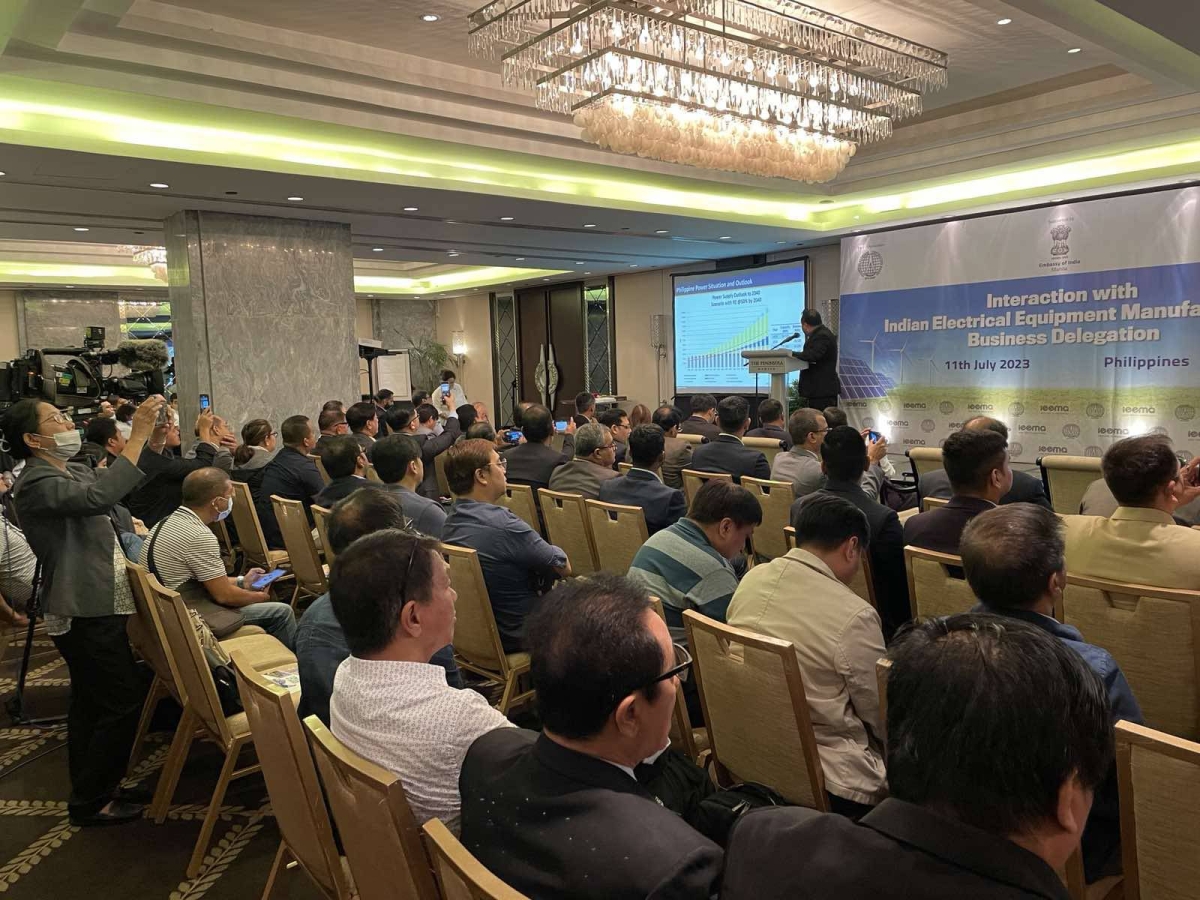
Toward its goal of improving the implementation of CPES, PDCB collaborates with the committee to endorse the proposed revisions in the CPES Guidelines to the National Economic and Development Authority for its final review and approval.
In its commitment to advocate for fair and equitable contract conditions for construction projects, PDCB is also committed to capacitating industry stakeholders by encouraging the adoption of a set of standard terms and conditions in standard conditions of construction contracts.
In partnership with its certified CIAP Document 102 trainers, PDCB is currently finalizing its training program on CIAP Document 102, otherwise known as the general conditions of contract for private construction. Partnerships with the academe are also being pursued to include CIAP Document 102 as one of the topics or subject matters for engineering and architectural programs or offerings.
Moreover, the CIAP-PDCB has entered into a memorandum of agreement with various construction and professional organizations for the capacity-building and promotion of CIAP Document 102.
Through CIAP-PDCB, the DTI also signed a memorandum of understanding (MoU) with Fédération Internationale des Ingénieurs-Conseils (Fidic), or International Federation of Consulting Engineers, with the goal of enhancing Philippine local capability in international contracts.
As part of the agreement under the 2-year MoU, a national awareness campaign will be conducted as part of the global advocacy program of promoting the use of Fidic contracts.
Active overseas promotion for expanded market access
As the CIAP’s overseas promotion arm, POCB endeavors to further promote construction industry players, including micro, small and medium enterprises, with an expanded scope of construction, related engineering and architectural design services in overseas markets such as the Association of Southeast Asian Nations, America and Europe.
It shall be done in partnership with other government agencies such as the Board of Investments and DTI’s Export Marketing Bureau.
In the next few years, POCB intends to conduct more benchmarking activities and outbound missions for the construction and related engineering services to expand the access of Philippine construction industry players to the global market.
Upgrading construction human resources through skills framework
The soon-to-be-developed Philippine Skills Framework for Construction (PSFC) complements the CMDF quality management system in providing a reference framework for the development and implementation of needs-responsive programs.
At the policy level, the PSFC will provide vital sector information, career pathways, and extensive documentation of the skills, competencies and corresponding proficiency levels required for all job roles and occupations in the local construction industry.
Through up-to-date labor market intelligence supplied by the DoLE and information on sector trends gathered through the framework, the CMDF will be provided with relevant and regularly updated information for the development of progressive and responsive curricula and training programs, including industry-validated qualification and credential requirements for certifications.
To encourage capacity-building interventions in construction firms, PCAB-CMDF is also designing a training rewards system for constructors. This initiative is an innovative approach to promote training and capacity-building within the construction industry. With this in place, construction firms can foster a culture of learning, professional development and excellence, ultimately leading to a safer, more efficient and sustainable construction sector.
Digitalizing alternative dispute resolution for construction
CIAC strives to pursue its plan for the development of an overall ecosystem for online construction dispute resolution, where proceedings are conducted virtually — from filing a case to the promulgation of the award and post-award activities.
Likewise, in order to be globally competitive and at par with other alternative dispute resolution (ADR) bodies, CIAC plans to introduce other ADR services or modes such as emergency arbitration, adjudication and mediation-arbitration to its clientele.
Professional and competent service for the Filipinos
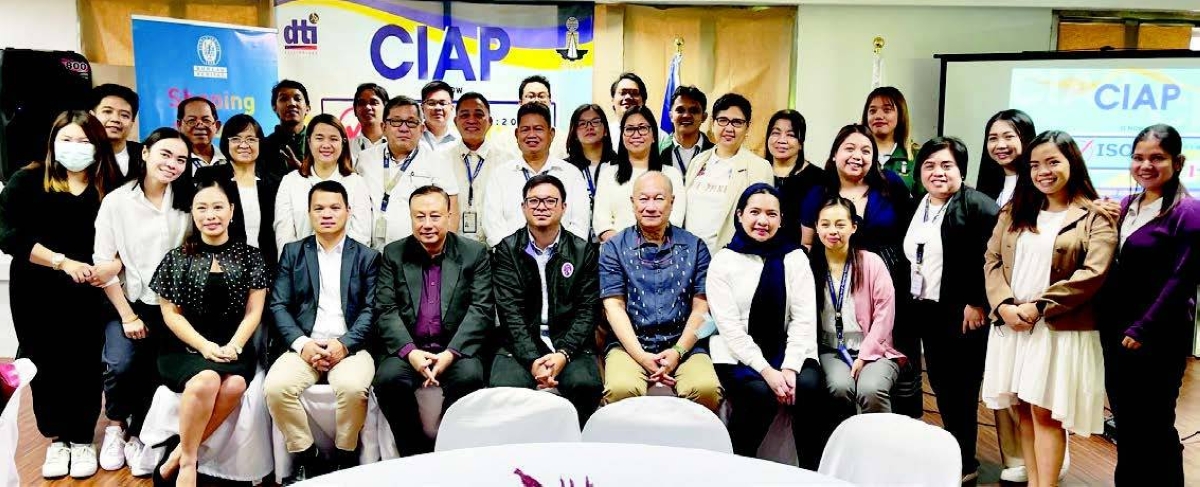
As a government agency, CIAP is dedicated to providing exceptional service to the Filipino people. It is committed to maintaining high standards of professionalism and competence not only to advance the construction industry, but also to contribute to the overall development of the nation’s economy.
The fundamental values of CIAP revolve around integrity, efficient policies, streamlined processes and unparalleled expertise provided by specialized and dedicated professionals. These principles are essential to governance as it helps build public trust and ensure competence in service delivery.
The CIAP demonstrates its commitment to integrity by ensuring that its processes, regulations, and decision-making mechanisms are transparent and accessible to the public. This is evident in its sustained efforts toward regulatory improvements, adaptation to changes for innovation and sustainability, digitalization for a more optimal utilization of resources, and the assurance of equal and fair access to services.
Strict compliance with government regulatory requirements is another way that CIAP showcases its passion to competently deliver its services. The agency joins the whole-of-government approach in guaranteeing that the ultimate beneficiaries of its programs and services are the Filipino people.
The CIAP ensures that it will not be complacent and will continue to introduce improvements in its management system. It aspires to become an International Organization for Standardization-certified agency for all of its quality management processes.
At its core, CIAP prioritizes the development of a culture that values professionalism and competency. It places significant importance on the continuous development of its members, recognizing their contributions in enhancing skills and knowledge as vital to achieving organizational goals and breakthroughs.
Within CIAP, the initiative to adopt the program to institutionalize meritocracy and excellence in human resource management will serve as the framework in improving the employees’ competency and professionalism, benefiting the agency as a whole.
The CIAP and its implementing boards collectively work with its partners, which include other government agencies, private sectors, academe, communities and other stakeholders to strengthen and advance the Philippine construction industry.
Each specific mandate contributes to fostering a robust and competitive construction sector, ensuring compliance with national and international standards, capacity-building, global competitiveness, dispute settlement and policy development for sustainable industry growth.
With a legacy of 43 years, CIAP reaffirms its commitment, integrity, advancement and professionalism to ensure a developed and thriving construction industry that serves the nation.
News Related-
Recall Just Announced For Popular Cookies Featured In Holiday Gift Baskets
-
Eagles rally past Bills in overtime as Chiefs win
-
Reality bites the green energy agenda
-
Sandigan orders Marcos Sr. pal to pay workers
-
DSWD: Shear line, LPA affect 1.2 million people; over 18,000 families evacuated
-
The mayor of Paris is making a loud exit from X, calling the platform a 'gigantic global sewer'
-
Rain showers, thunderstorms over Luzon, including Metro Manila — Pagasa
-
'Naruto' live-action film adaptation is in the works
-
NASA Highlights Stingray Nebula
-
Manila's Lagusnilad underpass opens
-
China probes debt-ridden financial giant
-
China's VUCA situation
-
Unraveling the mystery that is diabetes
-
Bangladesh's nuke plant is not going to steal PH investments
